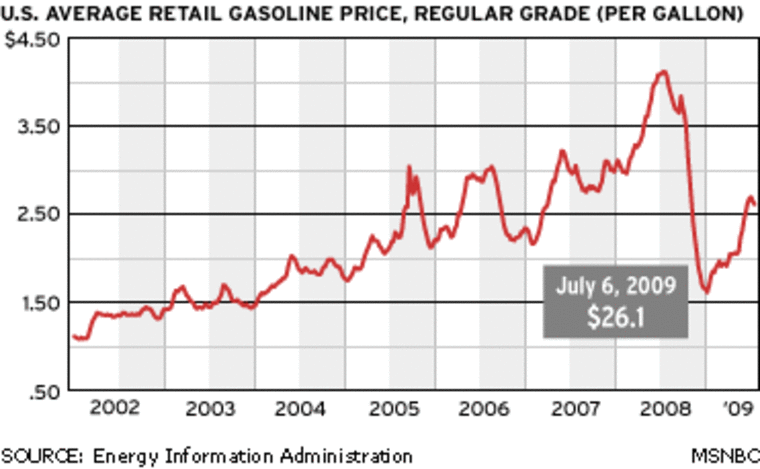“Boutique” gasoline blends to help states meet clean air rules are not a factor in higher prices as President Bush has suggested, says a draft of a study ordered by the White House.
Although often cited as a reason for volatile gasoline prices, so-called “boutique fuels” have not caused unusual distribution problems or contributed to price increases, the report concludes.
The review was conducted by a task force headed by the Environmental Protection Agency and involving representatives from the 50 states as well as the Energy and Agriculture departments.
Facing growing public outrage over soaring gasoline prices, Bush ordered the study on April 25 in a speech in which he attributed high gas prices in part to the growth of special fuels.
“We ... need to confront the larger problem of too many localized fuel blends, which are called boutique fuels,” the president told a renewable fuels conference, adding that this has produced “an uncoordinated, overly complex set of fuel rules” that “tends to cause the price to go up.”
But the task force found otherwise, according to its report to be released possibly as early as Friday.
According to a late draft, obtained Thursday by The Associated Press, the task force concludes that suggestions of a connection between boutique fuels and supply or price concerns cannot be supported.
The review “did not reveal any studies or empirical data confirming that boutique fuels presently contribute to higher fuel prices or present unusual distribution problems,” said the draft report.
The report, based on input from the states and the Energy and Agriculture departments, was written by the EPA.
It said that the refining and distribution systems are “able to provide adequate quantities of boutique fuels, as long as there are no disruptions in the supply chain.”
The state-required fuels “have served an important role” in helping states meet federal air quality standards, the report said, and will be equally important in meeting future clean air requirements.
Environmentalists and state air pollution control officials have argued that the clean air rules are not to be blamed for the run-up in gasoline prices that have seen $3-plus gas across the country.
“This is reaffirmation of the importance of state clean fuels programs to help clean up the air. And the EPA acknowledges there’s no association with (these) fuels and increases in cost and supply problems,” said William Becker, the executive director of two associations that represent state and local air pollution control agencies.
Nevertheless, there has been a push to reduce the number of such fuels that the EPA will allow.
At a recent House hearing, Rep. Joe Barton, R-Texas, called for streamlining the boutique fuel system as one solution to dealing with high gas prices.
Energy legislation passed by Congress last year limits the future growth of boutique fuels and gives the EPA clearer authority to waive their use in response to supply disruptions. The EPA used its new waiver authority in the aftermath of Hurricane Katrina.
Earlier this month, the EPA announced it will designate seven boutique fuels that can be used. These fuels help reduce smog by requiring more stringent evaporative requirements than conventional gasoline.
